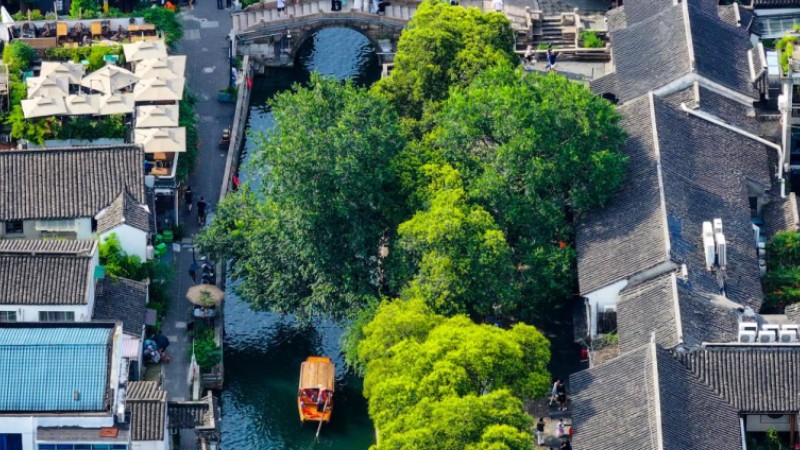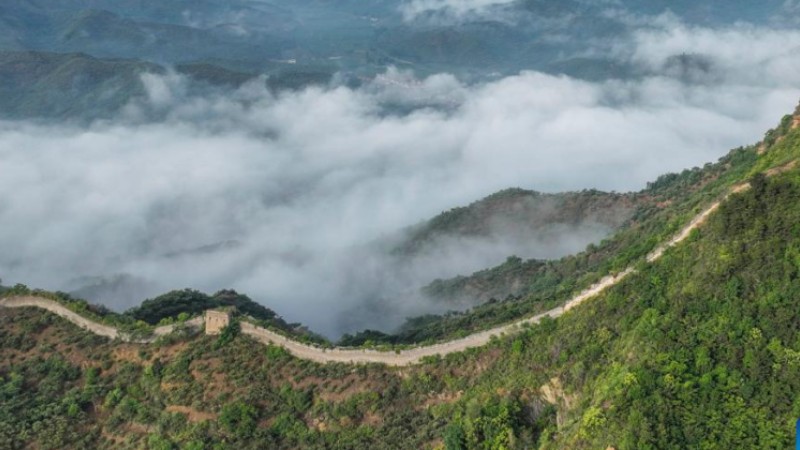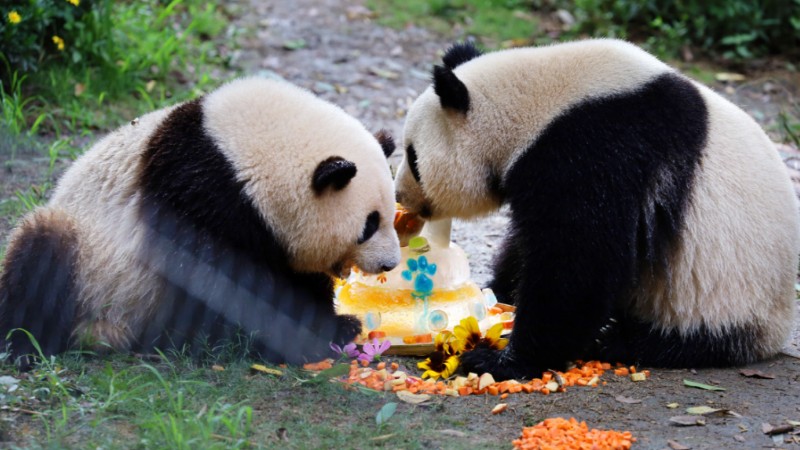Xinjiang Story: Museum owner honors struggles, virtues of the past
URUMQI, July 7 (Xinhua) -- A soldier's diary, a faded red flag from wartime, the compartment of a mobile communications vehicle from the 1960s -- these are just a few of the 30,000-plus items housed at Liu Yongpeng's private museum in northwest China's Xinjiang Uygur Autonomous Region.
The low-key museum -- consisting of a single hall measuring around 1,200 square meters -- was built up by Liu five years ago. At first, only friends and relatives visited, but now it draws over 100 visitors daily.
Most of the exhibits represent significant moments in history. The faded red flag is from the Chinese People's War of Resistance Against Japanese Aggression; the communications vehicle was used by a nuclear research center in Xinjiang in the 1960s; and the soldier's diary is from the War to Resist U.S. Aggression and Aid Korea.
Over the past 17 years, Liu has spent millions of yuan collecting, preserving and maintaining these items, which he obtained from various private individuals, and are relics of the lives they have lived.
SPIRIT OF THE TIMES
Liu, 43, has built this collection to showcase the immense changes that have taken place in Xinjiang over the decades. In the meantime, he aims to preserve and pass on the spirit of the older generations' virtues to the younger generations, including diligence, simplicity and frugality.
"Despite our blissful life today, we must not forget the hardships our predecessors endured," said Liu, who works as curator and interpreter at the museum.
In his childhood, Liu often listened to his father telling the life-story of his grandfather, who was a serf in Qinghai. As a child, his grandfather was forced to do hard labor on a farm, living a miserable life. He was 15 when he gained freedom after the founding of the People's Republic of China in 1949.
Liu's father joined the military at a young age and became a member of the Communist Party of China (CPC). After he retired from the army, he moved the whole family to Xinjiang and took part in the economic development of this inland region. Liu was born in Xinjiang in 1980.
He often heard his father say, "Without the CPC, there would be no freedom or happy life for people of all ethnic groups."
Recalling their early days in Xinjiang, Liu remembers living in a makeshift cave known as a "diwozi." These special dwellings were mainly built in desert areas by digging holes into the ground and covering them with reeds.
IMPROVED CONDITIONS
During the 1990s, Liu worked on construction sites, and his diligence brought him many opportunities. He then took on small projects and established his own company, leading an improved quality of life.
"My grandfather witnessed the liberation of the people, my father saw their living conditions improved, and my generation shares the fruits as the country becomes richer and stronger," said Liu.
Meanwhile, tremendous development and transformation have taken place in Xinjiang, he added. "People from all ethnic groups in Xinjiang enjoy peace and contentment at work and in life, and their lives have significantly improved."
"Policies to promote large-scale development in the western region have injected new vitality into the economic and social development of Xinjiang, and the region has seen a rapid development in urbanization," Liu said, adding his collection started at that time.
His company took part in various urbanization projects, such as the demolition of old buildings and the renovation of run-down urban areas. This enabled him to collect old items that had been abandoned, including enamel jars, kerosene lamps and ration coupons for food.
"These precious vintage items will become scarce in the future, so the idea of opening a small museum came to my mind," Liu explained.
Since 2006, he has traveled across the vast region and even to other provinces, collecting folk items, especially those related to the history of the CPC.
He has spared no expense in building his collection, even selling the five excavators owned by his company.
NEW GENERATIONS
At first, Liu's wife Zhao Yanling couldn't understand her husband's dedication to the museum project. "Almost all of our earnings and savings were used to support his collections," said Zhao.
Her feelings changed when her daughter's school arranged for students to visit the museum, and they gave positive feedback to Liu and Zhao.
"Our daughter became passionate about history then and became a young interpreter at the museum. So did I, telling visitors the touching stories behind each item," said Zhao.
For Liu, one of the most impressive items in his collection is a diary of a soldier who fought in the War to Resist U.S. Aggression and Aid Korea.
"He wrote down in his diary, 'I would rather die on the brutal and merciless frontlines than allow my motherland and the people to suffer under the yoke of fascism.' His pride and excitement upon joining the CPC, written down in red characters, also moved me to tears," Liu said.
Liu firmly believes that these items have the power to pass on to future generations the spirit of self-reliance and simplicity that characterized the older generation during the revolutionary period. "The spirit is far more precious than material wealth," he said.
Although Liu's museum struggles to make ends meet, despite government subsidies, he is more concerned with its social impacts. "As more and more people have come here and gained inspiration, I have decided to carry on," he said.
Photos
Related Stories
Copyright © 2023 People's Daily Online. All Rights Reserved.









